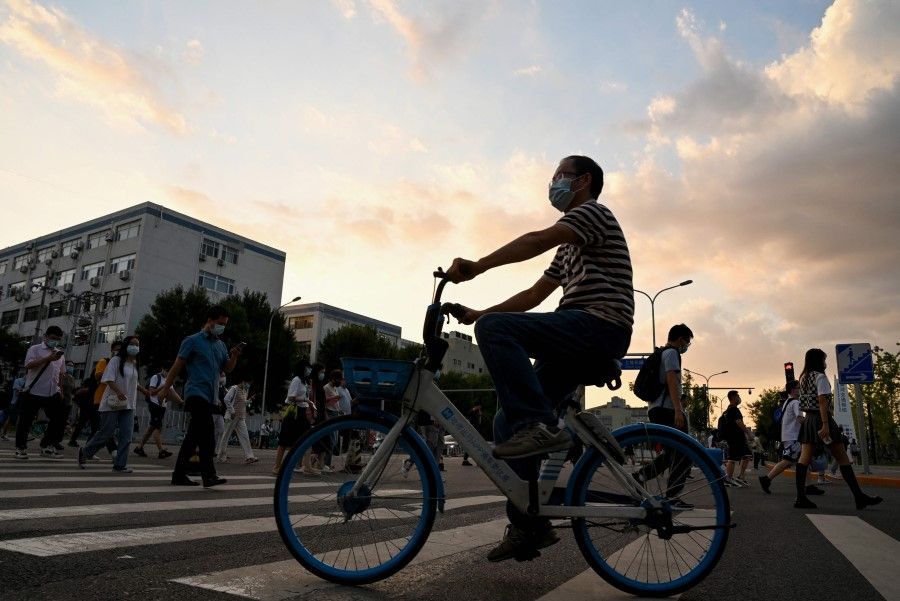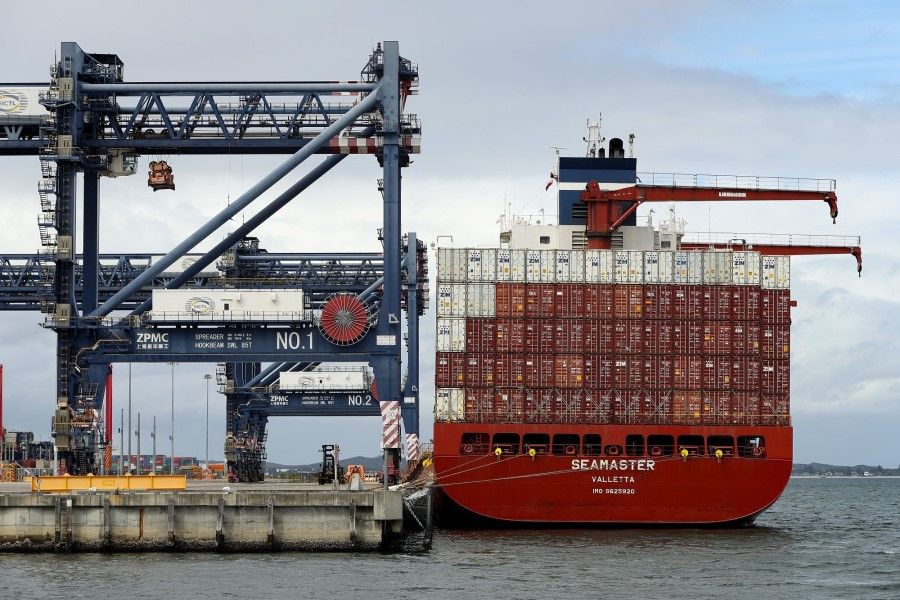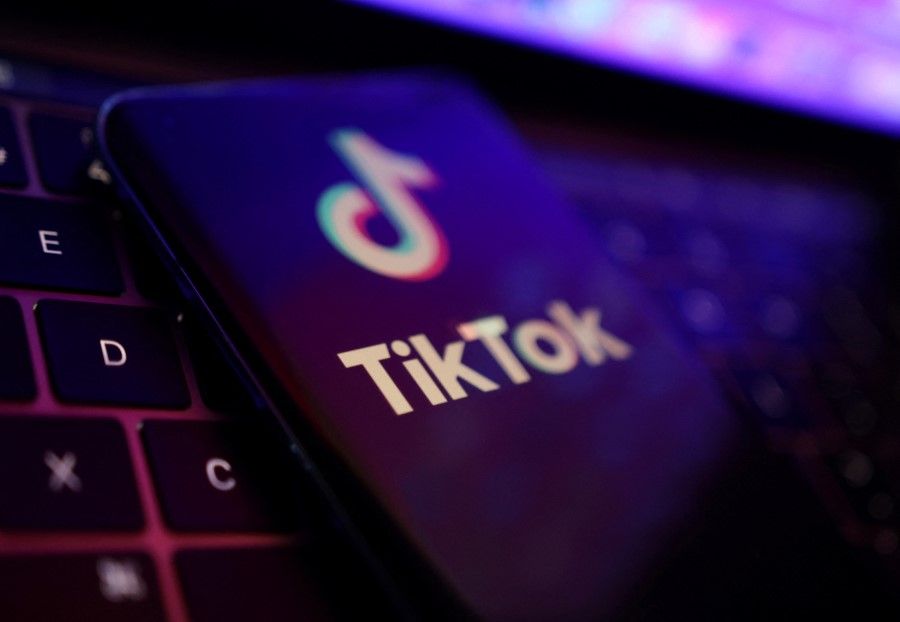China's rise is changing the liberal trade order into a power game

In 1979 Deng Xiaoping posed the following question: "Why can't we develop a market economy under socialism?" Deng argued China could take advantage of the capitalist "methods of operation and management" while retaining "a planned economy as the mainstay of our economic system".
In 1992, at a time when China was already six years into negotiations to join the World Trade Organization (WTO), the legal framework for developing a socialist market economy was officially laid down in the General Program of the constitution of the Chinese Communist Party (CCP), and the term appears prominently in the state constitution. It is only in recent years that the full ramifications of China's choice of development model are becoming apparent for all to see.
From a state-dominated economy to the growing use of economic coercion against trade partners, the socialist market economy plays by different rules from the liberal trade order, and is changing the game for everyone.
In liberal market economies, the private sector leads, the government regulates, the distinction between both is clear...
As recent research has documented, the socialist market economy operates according to its own model of governance. In liberal market economies, the private sector leads, the government regulates, the distinction between both is clear, and economic activity occurs within a rule-of-law system that protects against arbitrary acts of power. It was the large liberal economies, such as the US and the UK, that dominated the creation of global trade rules after WW2. They naturally used their domestic laws and practices as the foundation for the trade system's rulebook.
Where the government is economic competitor, investor and regulator
Compare that with the key features of China's socialist market economy, where the state sector takes the lead, producing up to 40% of total output; the government is simultaneously an economic competitor, investor and regulator; private firms have active Communist Party cells to ensure political education; and the distinction between public and private is at best many shades of grey, and at worst non-existent.
Wrap these features within a rule-by-law system, where laws are for governance and bureaucratic efficiency, but not for constraining the actions of the ruling Communist Party, and you end up with the socialist market economy - a development model where paradoxically both Adam Smith and Vladimir Lenin could find much, if not all, to their taste.
Trade centrality gives Beijing vast economic levers for influencing others. Its Leninist system of unconstrained governance gives it the practical means to implement such influence.

As China becomes the proverbial elephant in the world trade room, the domestic characteristics of China's system pose increasing challenges for the liberal economies trading with Beijing, and indeed for the liberal trade order itself.
Having grown to become the second largest national economy, Beijing is increasingly confident in acting as a rule maker rather than rule taker. The fact that China now dominates global trade in goods, displacing the US in 2018 as the top trade partner for a majority of countries (128 out of 190) provides it with the leverage to do so. Trade centrality gives Beijing vast economic levers for influencing others. Its Leninist system of unconstrained governance gives it the practical means to implement such influence.
Economic coercion tool
This is reflected in the growing use of economic coercion against its trading partners, in as many as 123 instances between 2010 and 2022, for a wide variety of political purposes. Early instances include suspending salmon imports from Norway in 2010, as punishment for the Nobel committee awarding a peace prize to Chinese dissident Liu Xiaobo. The salmon ban lasted until relations started to normalise in 2016. When the Philippines challenged Beijing's intrusion on Scarborough Shoal in 2012, it suffered an informal ban on its banana exports, while South Korea was hit with a tourist ban in 2017 for deploying THAAD missile systems on its territory.
Coercion can also be served cold, in the form of threats designed to change behaviour. When Australia first mentioned the idea of an international inquiry into the origins of the pandemic, Beijing's response was immediate. Chinese ambassador to Australia, Jingye Cheng, suggested the Chinese public may boycott Australian products if the idea was not canned. Cheng mused: "Maybe also the ordinary people will say why should we drink Australian wine or eat Australian beef?" When Australia followed through with an official call for an inquiry, Beijing quickly made a case for anti-dumping tariffs against wine that killed an annual export trade averaging A$2.6 billion (US$1.77 billion) in years prior.
While experts debate the level of risk with Huawei equipment, many agree it is a risk, whereas the same cannot be said of Norwegian salmon or Australian rock lobster.
As the political relationship deteriorated further, more formal and informal measures were applied to a broad array of Australian exports, estimated at costing businesses A$23 billion annually. These acts break the golden rule of the liberal trade system, that economics and politics be kept separate to ensure a stable and predictable business environment. Businesses should be able to rely on the objective application of existing rules, and plan ahead based on business fundamentals, rather than fretting over what the next political spat may portend for their exports.

There are exceptions to this principle. WTO rules contain a "security exceptions" clause that allows discretion for applying trade rules if a nation's security is at stake. While open to interpretation, historically WTO members have not abused this option.
For example, Berlin was operating within the national security clause when considering banning Huawei's 5G equipment in 2020. While experts debate the level of risk with Huawei equipment, many agree it is a risk, whereas the same cannot be said of Norwegian salmon or Australian rock lobster.
In China, a retaliatory ban on German industries would be arbitrarily applied, require no evidence and hold no possibility of a fair and independent appeal.
In response to Berlin's assessment of Huawei, the Chinese ambassador Wu Ken applied the public threat approach, noting that a decision to exclude Huawei would result in "consequences". One might argue that this is a fair quid pro quo, that one ban deserves another. However, Germany was applying a transparent process based on evidence of a genuine security risk as grounds to ban Huawei, with the latter having a right to appeal to an independent judiciary. In China, a retaliatory ban on German industries would be arbitrarily applied, require no evidence and hold no possibility of a fair and independent appeal. The difference in process is important for understanding the differences between liberal and socialist market economies.
A final example underlines the point. In the case of TikTok and Wechat, President Trump used an executive order to ban both on 6 Aug 2020. The ban, however, was suspended only weeks later through litigation, with a Federal judge stating it could be unconstitutional. It remained suspended through to 2021, when the Biden administration removed the ban entirely. Thus, even if a U.S. President seeks to abuse the WTO national security clause, they can face internal legal checks on their authority.
Can one imagine a Chinese court suspending an edict by President Xi as unconstitutional...

The case highlights the difference between "rule of law" and "rule by law". The former constrains the powerful in a system of transparent rules that apply to all; the latter is used by the powerful for implementing their goals. Can one imagine a Chinese court suspending an edict by President Xi as unconstitutional, let alone one banning foreign firms on national security grounds?
Can the world trade system remain rules-based?
The liberal trade system is supposed to operate as follows: the WTO is the referee, the rules constrain the powerful and economic competition is fair and predictable. The question posed by China's rise is whether the system can remain liberal, meaning rule-based, when its second largest member is a socialist market economy operating according to very different rules, which it increasingly seeks to apply externally. Only the US and EU have the economic heft to apply reciprocal punishment to China, if on the receiving end of coercion - others have little choice but to absorb the costs.
If more governments begin acting outside the rules, because those rules no longer protect them, the liberal trade order will inevitably transform from a rules-based, to a power-based system.
But the long-term damage from economic coercion may ultimately undermine the entire system, to China's loss as well as everyone else. Some governments are discussing ways to collectively respond to coercive trade acts. Paradoxically, any such response will have to be done outside of WTO rules, because these rules cannot handle informal coercive tactics, or are too slow in application to provide meaningful protection.
If more governments begin acting outside the rules, because those rules no longer protect them, the liberal trade order will inevitably transform from a rules-based, to a power-based system. While that may work for China domestically, applied internationally, it will corrode the stable system of international trade on which its modern rise has depended.
